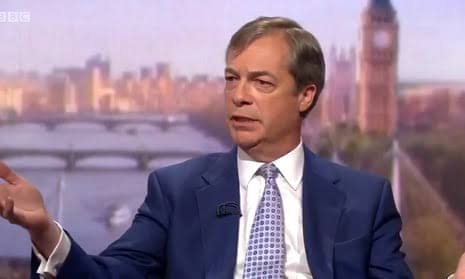Nigel Farage, leader of Reform UK, has sparked controversy by suggesting that the West “provoked” Russia’s invasion of Ukraine through the eastward expansion of the European Union (EU) and NATO. Farage acknowledged that the war was “of course” President Vladimir Putin’s fault but argued that the expansion of these alliances provided Putin with a “reason” to claim that the West was threatening Russia.
Farage’s remarks were met with swift condemnation from political figures across the spectrum. Conservative Home Secretary James Cleverly accused Farage of echoing Putin’s “vile justification” for the invasion. Labour’s defence spokesman John Healey went further, branding Farage “unfit for any political office.” Former NATO Secretary General Lord Robertson criticized Farage for “parroting the Kremlin Line” and offering new excuses for what he termed a “brutal, unprovoked attack.”

Farage defended his position by claiming he had been consistent in his warnings about NATO and EU expansion since the 1990s. He reiterated that this expansion gave Putin a pretext to tell the Russian people that the West was a threat. “We provoked this war. Of course, it’s [President Putin’s] fault,” Farage stated.
The controversy is not new for Farage, who faced backlash in 2014 for naming Putin as the world leader he most admired, though he clarified that his admiration was for Putin’s political acumen rather than his character. In a social media post in February 2022, Farage suggested that the Russian invasion was a “consequence of EU and NATO expansion,” a claim he repeated in an interview.
Responding to Farage’s assertions, Guy Verhofstadt, a prominent Belgian MEP, accused him of consistently defending Putin in the European Parliament and suggested that every vote for Farage was celebrated in Moscow. Verhofstadt and others pointed to Farage’s past speeches, including a 2014 address in the European Parliament where Farage called for the West to “stop playing war games with Putin.”
On Friday, Farage reiterated his stance on social media platform X (formerly Twitter), stating that he was “one of the few figures that have been consistent and honest about the war with Russia.” He reposted his 2014 European Parliament speech as evidence of his long-standing position on the issue.
Despite his defense, the backlash underscores the contentious nature of Farage’s comments, highlighting the deep divisions over the causes and justifications of the ongoing conflict in Ukraine.